Despite the fact that, at the moment, everyone lives under restricted measures, a humanitarian and empathetic interpretation of this emergency can inspire people to (re)act positively. As examples, many international newspapers have been covering “good news” , showing what ordinary people can provide to their community.
- The Washington Post: “Newspaper deliveryman brings groceries to his older customers on morning route”
- The New York Times: “This Brooklyn Landlord Just Canceled Rent for Hundreds of Tenants”
- Forbes: “Meet The Italian Engineers 3D-Printing Respirator Parts For Free To Help Keep Coronavirus Patients Alive”
Consequentially to these kinds of news, a survey has been submitted to students across Europe, but open to the world, in order to mirror the real perception of what are the good and bad sides which came out of the quarantine.
Nationalities
80 students, who are mainly studying in Kiel, Germany, Italy and Norway, have answered. They are more precisely (from):
Made with Visme Infographic Maker
Others, who responded in fewer numbers, were from USA (NYC), India, Indonesia, Iran, Japan, Mexico, Morocco, Nigeria, South Korea and Argentina.

(Photo M. Baratella)
All these people, coming from different nations, also represent a group of young-adults who may have faced difficult choices. Travel back to their home countries, spend the quarantine with their dear ones or stay in a host country.
Everyone has never faced this emergency before. Therefore, it is difficult to evaluate the risks of one single action. Your choices suddenly become the choices of the people around you. Many flights have been cancelled, many people have been forced to change travel routes and important future plans.
At this point, almost everyone now has experienced what means to be denied to pursue their own desires, whatever they were, if long-terms or short-terms projects, they now have been postponed or cancelled.
Good deeds
Anyway, in these unclear times, someone has showed bright examples which shine a light. Most of the survey’s answers (97%) have heard, at least once, about the good acts of empathy that emerged during the emergency. These acts, not only, help people in need of practical aid but they also provide, the world wide community, with hope and inspiration. People are brought to interpret the current situation in a positive way, giving an alternative and creative point of view on the quarantine.
Here are the good acts which have been perceived as the most active around:
- 74% (heard of) Volunteers buying groceries for people in need
- 68% Food donations
- 67% Donations of medical material
- 49% International medical aids
- 47% Finance support to aid families in need.
Moreover, other creative ways of mutual help, except the governmental aid, have been activated. For example, 19%, of the people answering to the survey, confirmed to be active in the help network.
(Photo M. Baratella)
Some families are sewing face masks, someone is voluntarily offering to buy groceries to elderly neighbours, someone donates money to the local home towns, local communities in NYC promote fundraising campaigns on Facebook dedicated to artists and musicians without income and someone buys and donates medical material and food.
Other examples, extracted from the survey’s answers, are: virtual vouchers for Cafes, shops and restaurants, free home children-care, 3D printing of necessary mechanical parts at home or in universities, subscription to local first aid organizations and food donations powered by shut down restaurants.
Last but not least, “WirVsVirus Hackathon” is a German online platform which brings creatives, designers and change makers people together on online meetings. The participants are divided into groups with the aim of proposing creative solutions to fight the current viral emergency.
Finally, one thing can be assimilated by this report: most of the people are actively contributing to try to solve the emergency. In this moment, of physical distance, it seems that we are acting as one, as a singular strength. Everyone try to observe the same rules, at the best that they can and, out of them, they try to find creative, innovative and functional solutions. Moreover, the 82% positively answered to be willing to help and volunteer to solve the Coronavirus crisis.
Get inspired, stay creative
The survey has collected one last important information. Exactly 13 out of the 79 people answering have, at least, one relative infected by the Coronavirus, in their extended family. This means that the problem is real and it must be solved with vanguard, serious and fast solutions. However, these data also show that people are embracing creative solutions over difficult situations. These topics may help to, get inspired, remain active and live in harmony, even during the most difficult times.
![FHews – [ fju:s]](http://fhews.de/wp-content/uploads/2015/05/fhews_logo2_3B8ACC.jpg)


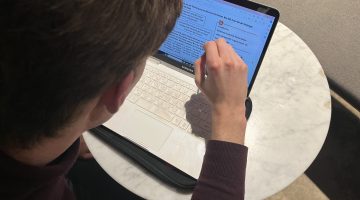





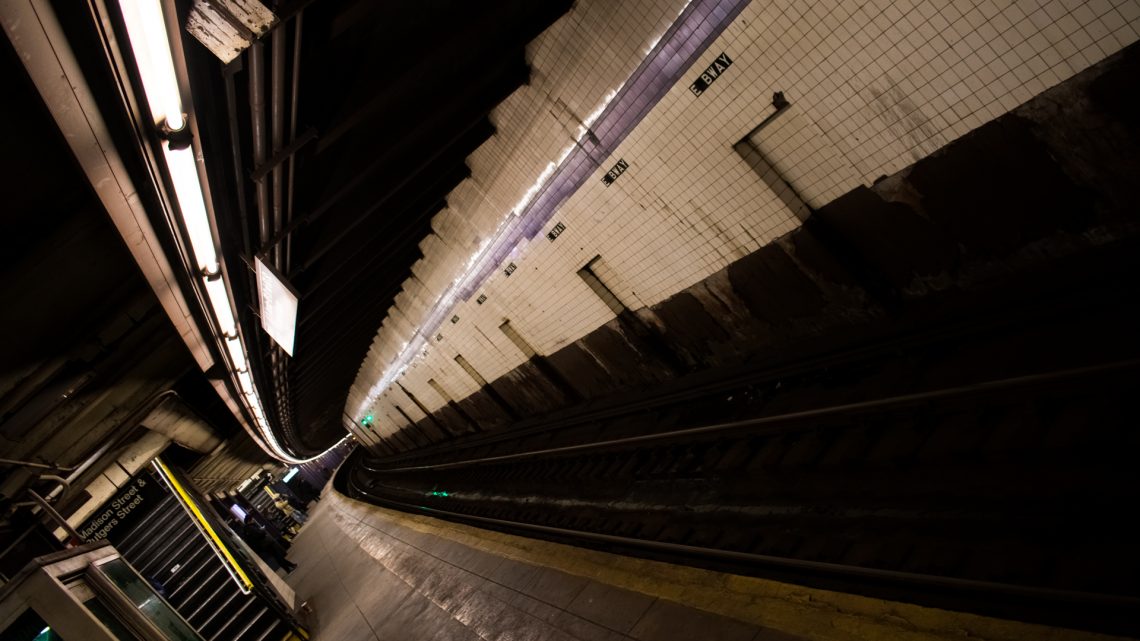
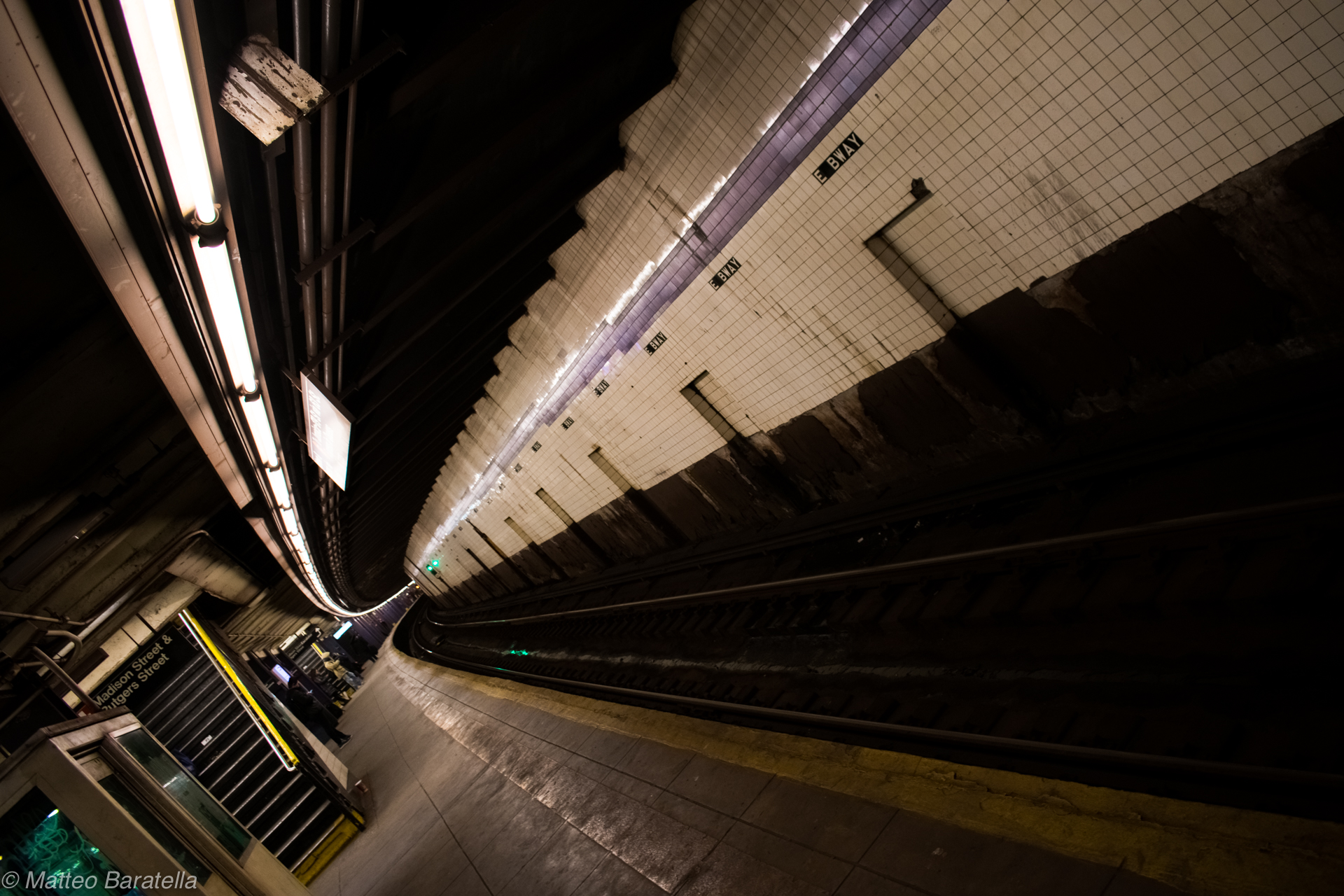
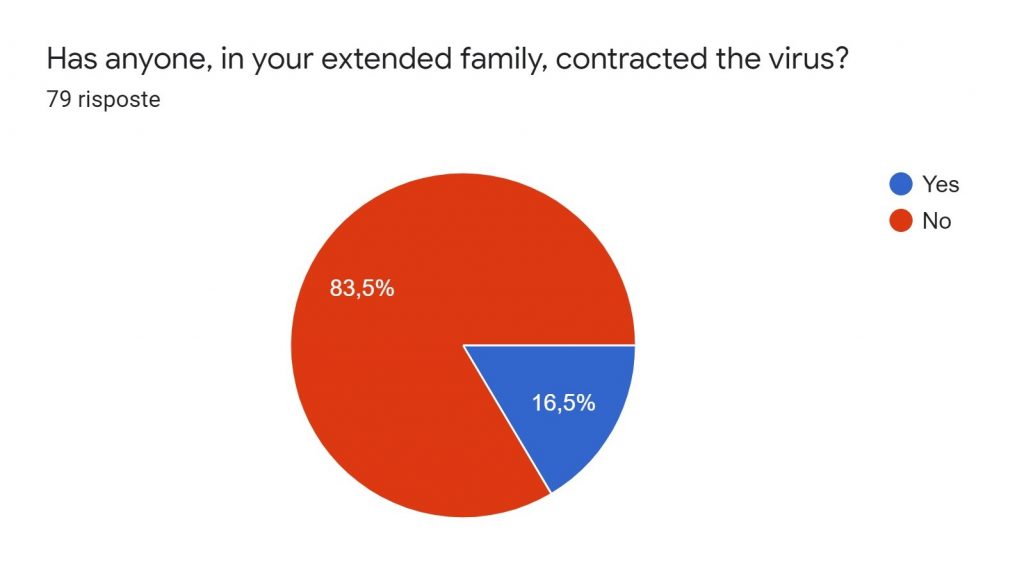
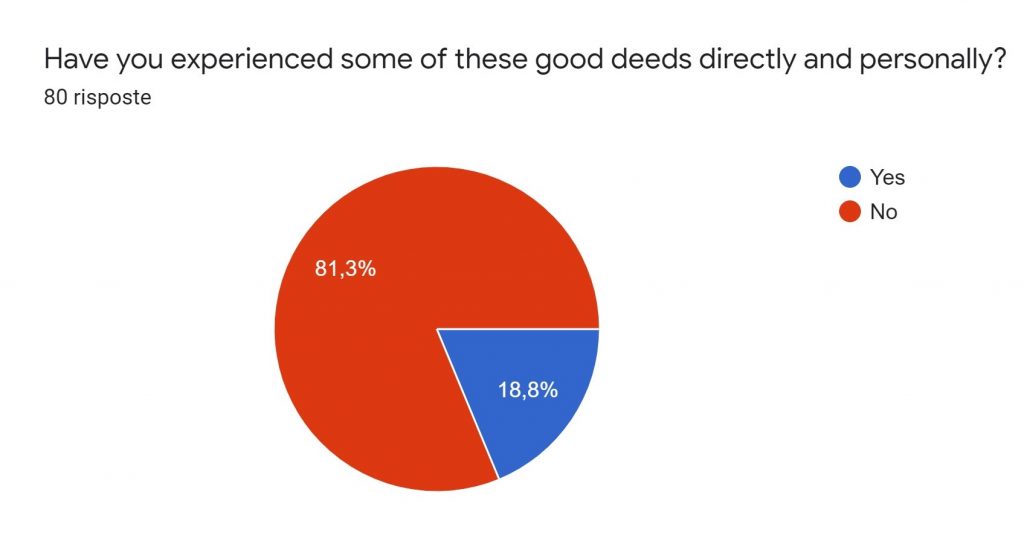
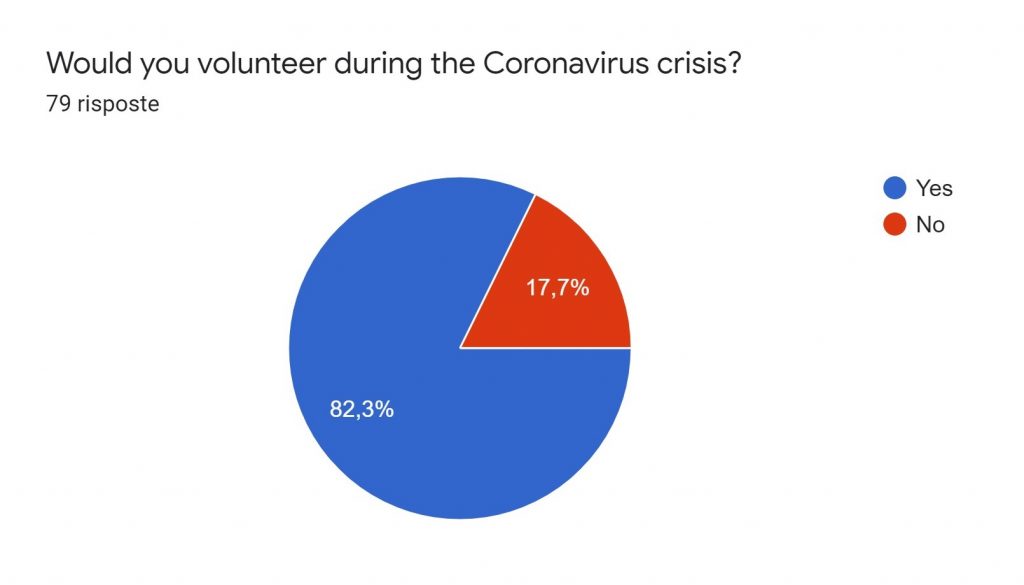



No Comment